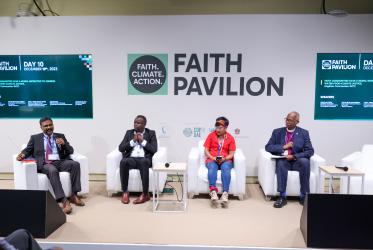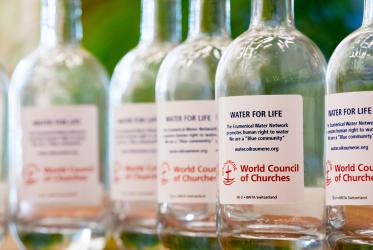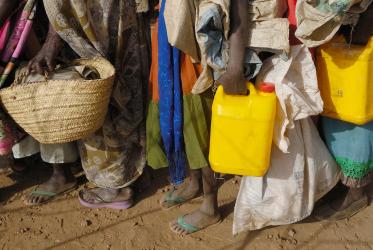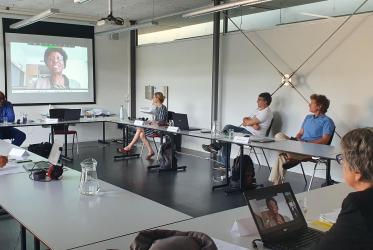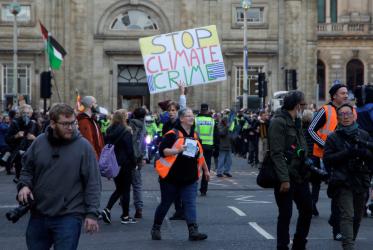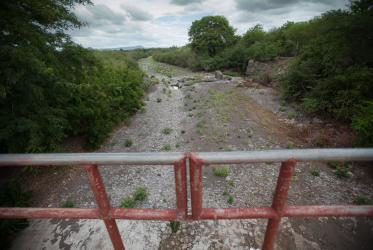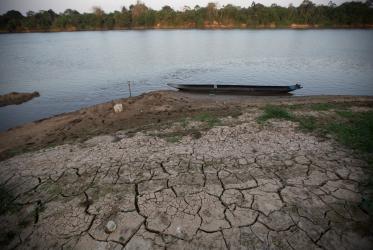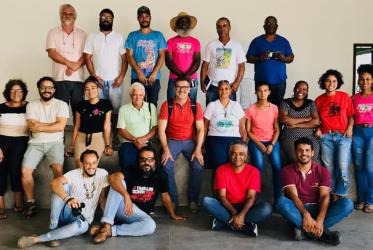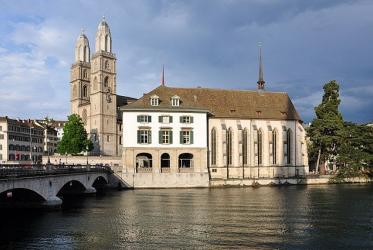Displaying 1 - 20 of 60
WCC joins Blue Communities in urging “Water for Life—Not for Profit”
11 December 2023
Water and sanitation prominent on COP27 agenda
28 November 2022
2022 Social Forum: Water for human rights and sustainable development
03 - 04 November 2022
Palais des Nations in Geneva, Switzerland
WCC’s Ecumenical Water Network attends Pilgrim Team Visit
30 August 2022
Water and justice at the WCC 11th Assembly
20 July 2022
Protecting Ethiopia’s church forests
27 October 2021
Brazilian ecumenical water network launched
29 July 2021
Pulling together for a living River Pardo
02 July 2021

